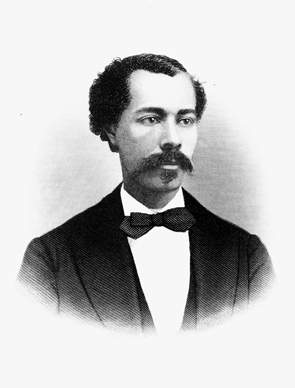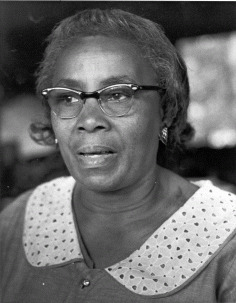
Alice Malsenior Tallulah-Kate Walker is an American novelist, short story writer, poet, and social activist. In 1982, she became the first African-American woman to win the Pulitzer Prize for Fiction, which she was awarded for her novel The Color Purple. Over the span of her career, Walker has published seventeen novels and short story collections, twelve non-fiction works, and collections of essays and poetry.

Maya Angelou was an American memoirist, poet, and civil rights activist. She published seven autobiographies, three books of essays, several books of poetry, and is credited with a list of plays, movies, and television shows spanning over 50 years. She received dozens of awards and more than 50 honorary degrees. Angelou's series of seven autobiographies focus on her childhood and early adult experiences. The first, I Know Why the Caged Bird Sings (1969), tells of her life up to the age of 17 and brought her international recognition and acclaim.

Ida Bell Wells-Barnett was an American investigative journalist, educator, and early leader in the civil rights movement. She was one of the founders of the National Association for the Advancement of Colored People (NAACP). Wells dedicated her career to combating prejudice and violence, and advocating for African-American equality—especially that of women.

Rebecca Walker is an American writer, feminist, and activist. Walker has been regarded as one of the prominent voices of Third Wave Feminism, and the coiner of the term "third wave", since publishing a 1992 article on feminism in Ms. magazine called "Becoming the Third Wave", in which she proclaimed: "I am the Third Wave."

"Fannie Lou Hamer" was an American voting and women's rights activist, community organizer, and a leader in the civil rights movement. She was the vice-chair of the Freedom Democratic Party, which she represented at the 1964 Democratic National Convention. Hamer also organized Mississippi's Freedom Summer along with the Student Nonviolent Coordinating Committee (SNCC). She was also a co-founder of the National Women's Political Caucus, an organization created to recruit, train, and support women of all races who wish to seek election to government office.

I Know Why the Caged Bird Sings is a 1969 autobiography describing the young and early years of American writer and poet Maya Angelou. The first in a seven-volume series, it is a coming-of-age story that illustrates how strength of character and a love of literature can help overcome racism and trauma. The book begins when three-year-old Maya and her older brother are sent to Stamps, Arkansas, to live with their grandmother and ends when Maya becomes a mother at the age of 16. In the course of Caged Bird, Maya transforms from a victim of racism with an inferiority complex into a self-possessed, dignified young woman capable of responding to prejudice.
African American literature is the body of literature produced in the United States by writers of African descent. It begins with the works of such late 18th-century writers as Phillis Wheatley. Before the high point of enslaved people narratives, African American literature was dominated by autobiographical spiritual narratives. The genre known as slave narratives in the 19th century were accounts by people who had generally escaped from slavery, about their journeys to freedom and ways they claimed their lives. The Harlem Renaissance of the 1920s was a great period of flowering in literature and the arts, influenced both by writers who came North in the Great Migration and those who were immigrants from Jamaica and other Caribbean islands. African American writers have been recognized by the highest awards, including the Nobel Prize given to Toni Morrison in 1993. Among the themes and issues explored in this literature are the role of African Americans within the larger American society, African American culture, racism, slavery, and social equality. African-American writing has tended to incorporate oral forms, such as spirituals, sermons, gospel music, blues, or rap.

John Roy Lynch was an American writer, attorney, military officer, author, and Republican politician who served as Speaker of the Mississippi House of Representatives and represented Mississippi in the United States House of Representatives.

Anne Moody was an American author who wrote about her experiences growing up poor and black in rural Mississippi, and her involvement in the Civil Rights Movement through the NAACP, CORE and SNCC. Moody began fighting racism and segregation as a young girl growing up in Centreville, Mississippi.

Septima Poinsette Clark was an African American educator and civil rights activist. Clark developed the literacy and citizenship workshops that played an important role in the drive for voting rights and civil rights for African Americans in the Civil Rights Movement. Septima Clark's work was commonly under-appreciated by Southern male activists. She became known as the "Queen Mother" or "Grandmother" of the Civil Rights Movement in the United States. Martin Luther King Jr. commonly referred to Clark as "The Mother of the Movement". Clark's argument for her position in the Civil Rights Movement was one that claimed "knowledge could empower marginalized groups in ways that formal legal equality couldn't."

The Heart of a Woman (1981) is an autobiography by American writer Maya Angelou. The book is the fourth installment in Angelou's series of seven autobiographies. The Heart of a Woman recounts events in Angelou's life between 1957 and 1962 and follows her travels to California, New York City, Cairo, and Ghana as she raises her teenage son, becomes a published author, becomes active in the civil rights movement, and becomes romantically involved with a South African anti-apartheid fighter. One of the most important themes of The Heart of a Woman is motherhood, as Angelou continues to raise her son. The book ends with her son leaving for college and Angelou looking forward to newfound independence and freedom.

Myrlie Louise Evers-Williams is an American civil rights activist and journalist who worked for over three decades to seek justice for the 1963 murder of her husband Medgar Evers, another civil rights activist. She also served as chairwoman of the NAACP, and published several books on topics related to civil rights and her husband's legacy. On January 21, 2013, she delivered the invocation at the second inauguration of Barack Obama.

Doris Adelaide Derby was an American activist and documentary photographer. She was the adjunct associate professor of anthropology at Georgia State University and the founding director of their Office of African-American Student Services and Programs. She was active in the Mississippi civil rights movement, and her work discusses the themes of race and African-American identity. She was a working member of the Student Nonviolent Coordinating Committee (SNCC) and co-founder of the Free Southern Theater. Her photography has been exhibited internationally. Two of her photographs were published in Hands on the Freedom Plow: Personal Accounts by Women in SNCC, to which she also contributed an essay about her experiences in the Mississippi civil rights movement.
Racial passing occurs when a person who is classified as a member of a racial group is accepted or perceived ("passes") as a member of another racial group.

Meridian is a 1976 novel by Alice Walker. It has been described as Walker's "meditation on the modern civil rights movement." Meridian is about Meridian Hill, a young black woman in the late 1960s who is attending college as she embraces the civil rights movement at a time when the movement becomes violent. The story follows her life into the 1970s through a relationship that ultimately fails, and her continued efforts to support the movement.

Vernon Ferdinand Dahmer Sr. was an American civil rights movement leader and president of the Forrest County chapter of the NAACP in Hattiesburg, Mississippi. He was murdered by the White Knights of the Ku Klux Klan for his work on recruiting Black Americans to vote.

Gather Together in My Name is a 1974 memoir by American writer and poet Maya Angelou. It is the second book in Angelou's series of seven autobiographies. Written three years after the publication of and beginning immediately following the events described in I Know Why the Caged Bird Sings, it follows Angelou, called Rita, from the ages of 17 to 19. The title is taken from the Bible, but also conveys how one Black female lived in the white-dominated society of the U.S. following World War II.

Published in 1983, In Search of Our Mothers' Gardens: Womanist Prose is a collection composed of 36 separate pieces written by Alice Walker. The essays, articles, reviews, statements, and speeches were written between 1966 and 1982. Many are based on her understanding of "womanist" theory. Walker defines "womanist" at the beginning of the collection as "A black feminist or feminist of color. From the black folk expression of mother to female children and also a woman who loves other women, sexually and/or nonsexually. Appreciates and prefers women's culture. Committed to survival and wholeness of entire people, male and female. Womanist is to feminist as purple is to lavender."

The themes encompassed in African-American writer Maya Angelou's seven autobiographies include racism, identity, family, and travel. Angelou (1928–2014) is best known for her first autobiography, I Know Why the Caged Bird Sings (1969). The rest of the books in her series are Gather Together in My Name (1974), Singin' and Swingin' and Gettin' Merry Like Christmas (1976), The Heart of a Woman (1981), All God's Children Need Traveling Shoes (1986), A Song Flung Up to Heaven (2002), and Mom & Me & Mom (2013).
Mildred Pitts Walter is an American children's book writer, known for her works featuring African-American protagonists. Walter has written over 20 books for young readers, including fiction and nonfiction. Several of her books have won or been named to the honor list of the Coretta Scott King Awards. A native of Louisiana who later moved to Denver, Walter was inducted into the Colorado Women's Hall of Fame in 1996. She published her autobiography, Something Inside So Strong: Life in Pursuit of Choice, Courage, and Change, in 2019.

















